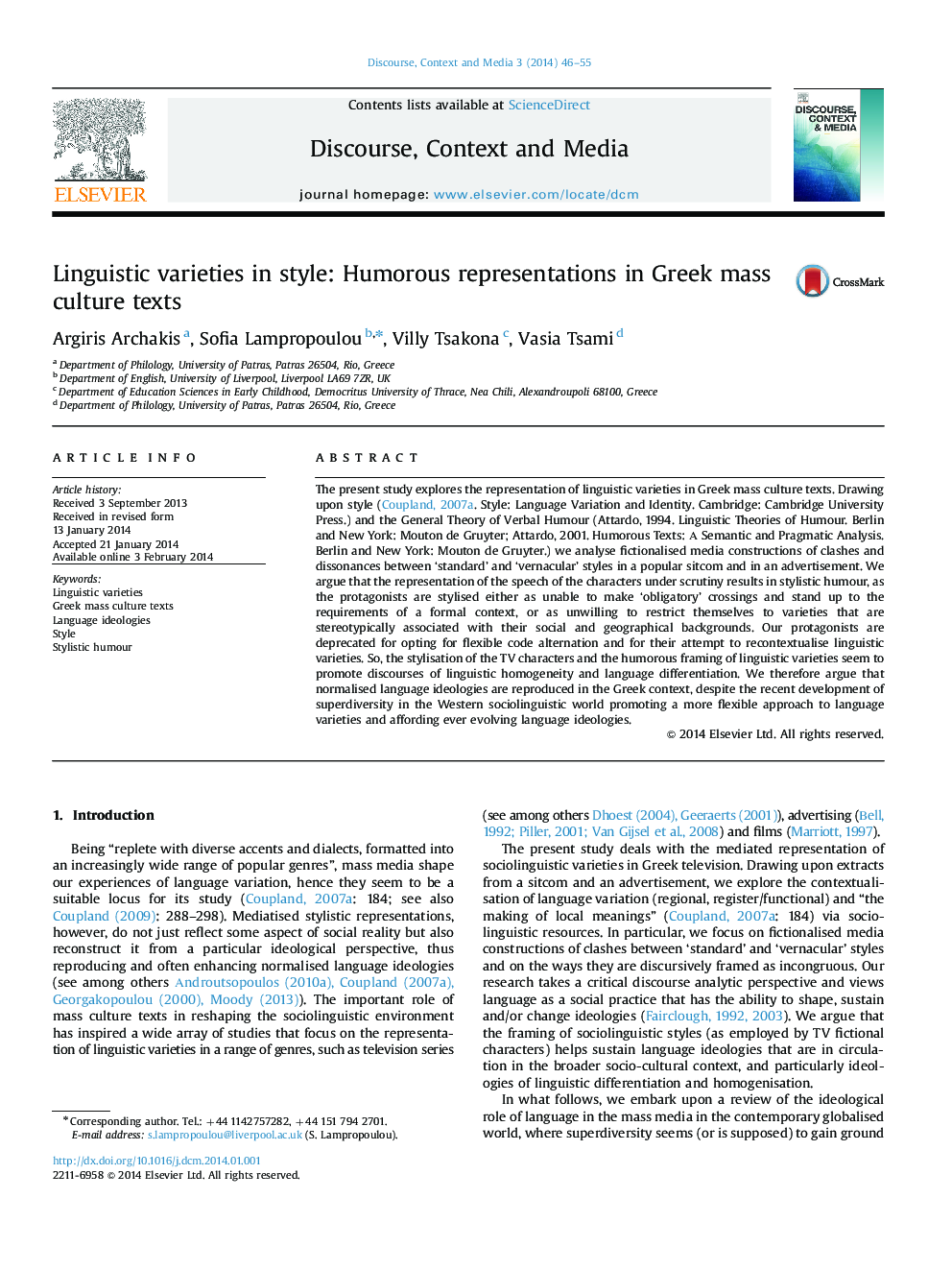| Article ID | Journal | Published Year | Pages | File Type |
|---|---|---|---|---|
| 1100629 | Discourse, Context & Media | 2014 | 10 Pages |
•We focus on the representation of linguistic varieties in Greek mass culture texts.•The representation of the speech of TV protagonists generates stylistic humour.•Linguistic homogeneity and language demarcation is promoted.•Normalised language ideologies are enforced and sustained in Greek TV.
The present study explores the representation of linguistic varieties in Greek mass culture texts. Drawing upon style (Coupland, 2007a. Style: Language Variation and Identity. Cambridge: Cambridge University Press.) and the General Theory of Verbal Humour (Attardo, 1994. Linguistic Theories of Humour. Berlin and New York: Mouton de Gruyter; Attardo, 2001. Humorous Texts: Α Semantic and Pragmatic Analysis. Berlin and New York: Mouton de Gruyter.) we analyse fictionalised media constructions of clashes and dissonances between ‘standard’ and ‘vernacular’ styles in a popular sitcom and in an advertisement. We argue that the representation of the speech of the characters under scrutiny results in stylistic humour, as the protagonists are stylised either as unable to make ‘obligatory’ crossings and stand up to the requirements of a formal context, or as unwilling to restrict themselves to varieties that are stereotypically associated with their social and geographical backgrounds. Our protagonists are deprecated for opting for flexible code alternation and for their attempt to recontextualise linguistic varieties. So, the stylisation of the TV characters and the humorous framing of linguistic varieties seem to promote discourses of linguistic homogeneity and language differentiation. We therefore argue that normalised language ideologies are reproduced in the Greek context, despite the recent development of superdiversity in the Western sociolinguistic world promoting a more flexible approach to language varieties and affording ever evolving language ideologies.
